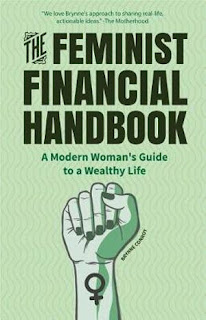Anti Wage-Slavery Pro-Freedom Quotations Of The Week 1850-1852
This was history’s greatest lesson, ever, period, full stop — that poverty is the greatest bad known to humankind. (In the same way that we speak of books or healthcare as “goods.”) Until the second world war, we didn’t have an explanation for war, violence, ruin — and hence, we had no power over it whasoever. Human history was therefore just a long cycle of violence, repeating itself forever. War, violence was imagined to be a thing unto itself, which no one could explain or predict. Only following the war did human beings understand, for the first time, that it was poverty which ignites violence, tribalism, and regress. We gained the power to stop and prevent war, for the first time in human history. That is why under the global consensus of the 1950s, war and violence finally began to slow, as poverty began to fall.
Only one nation didn’t seem interested in learning this lesson — and my second reason we haven’t learned anything from the 1930s is hubris.
Why Haven’t We Learned Anything From the 1930s?
umair haque
I suppose for a lot of people the individual civilizing mission feels more doable than structural change, so they feel compelled to concentrate their limited energy in that way. But I think that in a culture where women have more economic opportunities, men self-civilize in a way because they realize that if they want to be in relationships with women they can’t be abusive, they can’t take women for granted.
There were brilliant socialist feminists in the seventies, people like Silvia Federici and others, who were making the case that large structural changes would reorganize relationships between men and women. What happened is that, as Nancy Fraser has written about, feminism was largely co-opted by neoliberal capitalism. So we ended up getting a kind of Sheryl Sandberg-style “lean in” feminism, which is all about individual success and creating conditions for a handful of women to be as filthy rich as a handful of men are.
The idea of socialist feminism evaporated with the general global backlash against Marxism and the rise of neoliberalism.
from
No Scrubs
An interview with
Kristen R. Ghodsee
The last time that GM was in trouble, during the 2009 fiscal meltdown, it was the federal government that rode to the rescue with a bailout that totalled $10.8 billion in loans, share purchases and subsidies. Some of that money was paid back, but the net loss on the package is somewhere in the neighbourhood of $4 billion to $5 billion — including a $1 billion loan write-off that Ottawa buried deep in its books.
One number cruncher from the conservative Fraser Institute think tank figures the net cost to taxpayers at roughly $474,000 for each of the company's Canadian workers.
Either way, the reality is that there are select few industries in Canada that aren't receiving some form of corporate welfare.
Here's how GM's government subsidies stack up against other businesses in Canada
CBC
Only one nation didn’t seem interested in learning this lesson — and my second reason we haven’t learned anything from the 1930s is hubris.
Why Haven’t We Learned Anything From the 1930s?
umair haque
I suppose for a lot of people the individual civilizing mission feels more doable than structural change, so they feel compelled to concentrate their limited energy in that way. But I think that in a culture where women have more economic opportunities, men self-civilize in a way because they realize that if they want to be in relationships with women they can’t be abusive, they can’t take women for granted.
There were brilliant socialist feminists in the seventies, people like Silvia Federici and others, who were making the case that large structural changes would reorganize relationships between men and women. What happened is that, as Nancy Fraser has written about, feminism was largely co-opted by neoliberal capitalism. So we ended up getting a kind of Sheryl Sandberg-style “lean in” feminism, which is all about individual success and creating conditions for a handful of women to be as filthy rich as a handful of men are.
The idea of socialist feminism evaporated with the general global backlash against Marxism and the rise of neoliberalism.
from
No Scrubs
An interview with
Kristen R. Ghodsee
The last time that GM was in trouble, during the 2009 fiscal meltdown, it was the federal government that rode to the rescue with a bailout that totalled $10.8 billion in loans, share purchases and subsidies. Some of that money was paid back, but the net loss on the package is somewhere in the neighbourhood of $4 billion to $5 billion — including a $1 billion loan write-off that Ottawa buried deep in its books.
One number cruncher from the conservative Fraser Institute think tank figures the net cost to taxpayers at roughly $474,000 for each of the company's Canadian workers.
Either way, the reality is that there are select few industries in Canada that aren't receiving some form of corporate welfare.
Here's how GM's government subsidies stack up against other businesses in Canada
CBC





0 Comments:
Post a Comment
<< Home